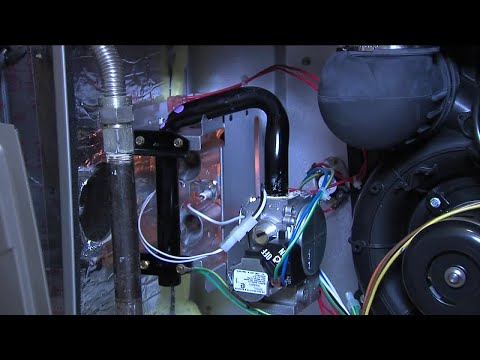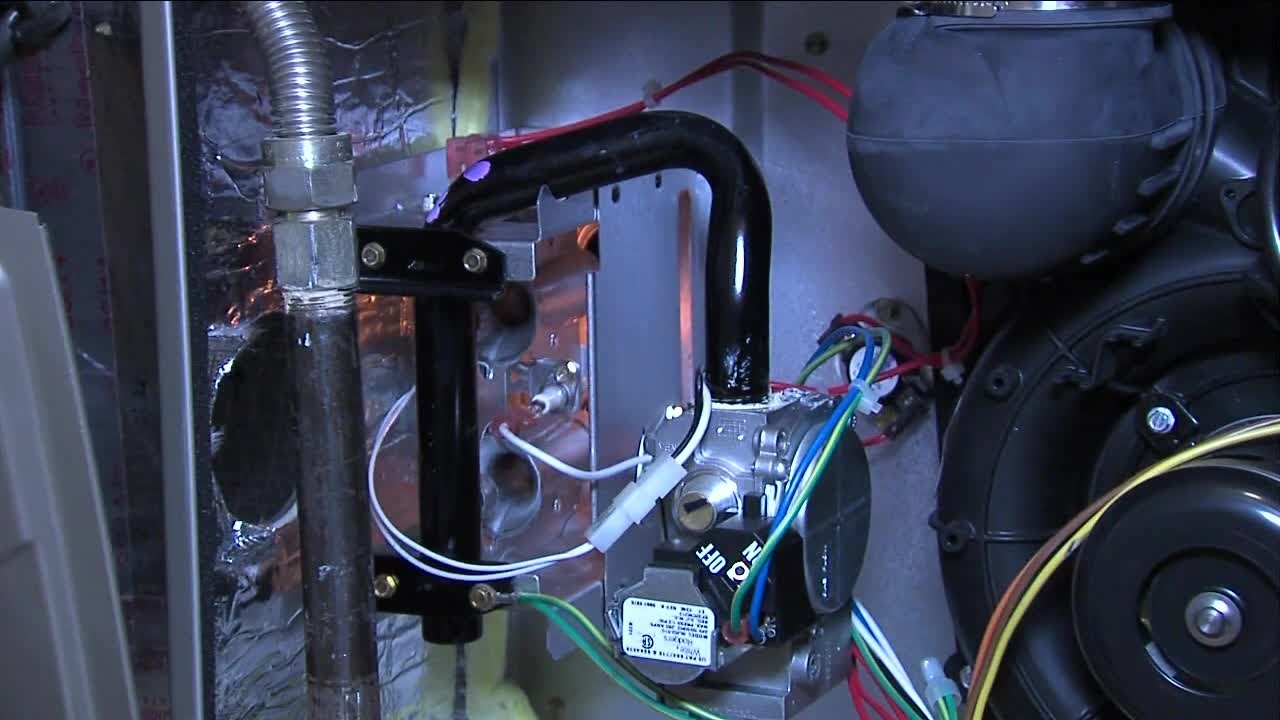Discover what to do if your heat goes out and stay warm during the cold winter months. Losing heat in your home can be a daunting experience, but fear not! We have all the solutions to help you tackle this issue and ensure your comfort. First, check your thermostat to ensure it is set to the desired temperature and functioning properly. If it’s working fine, move on to inspecting your furnace. Professional help may be required if you are not familiar with furnace maintenance, but simple tasks like checking the pilot light or replacing a dirty air filter can often resolve the problem. If these steps don’t solve the issue, it’s time to focus on alternative heating sources. Consider using portable space heaters, electric blankets, or even building a fire in your fireplace (if you have one) to keep warm temporarily. Additionally, remember to properly insulate your home by sealing any drafts and closing off unused rooms. Lastly, don’t forget to dress warmly and layer up with cozy blankets and clothing. With these strategies in mind, you can confidently navigate the situation when your heat goes out and ensure a warm and comfortable environment in your home.

What to Do If Your Heat Goes Out
| Step | Instructions |
|---|---|
| 1 | Check the thermostat settings to ensure it is properly programmed and set to the desired temperature. Sometimes, simple user error can lead to heating issues. |
| 2 | Inspect the circuit breaker panel and ensure that the breaker for the heating system is not tripped. If it is, reset the breaker and see if the heat resumes. |
| 3 | Check the pilot light on gas furnaces. If it is out, carefully relight it following the manufacturer’s instructions. If you are unsure or uncomfortable doing this, it’s best to call a professional technician. |
| 4 | Ensure that all vents and registers are open and unobstructed. Blocked vents can prevent proper airflow and result in inadequate heating. Additionally, clean or replace air filters regularly to avoid restricted airflow. |
| 5 | If your heating system uses oil, verify that there is an adequate oil supply. Running out of oil can cause your heat to stop working. Contact your oil supplier for a refill if needed. |
| 6 | Consider using alternative heat sources, such as space heaters or electric blankets, to keep warm temporarily while waiting for repairs. However, always follow safety guidelines and manufacturer’s instructions when using these devices. |
| 7 | If none of the above steps work or you are unable to troubleshoot the issue, it is recommended to contact a licensed HVAC technician. They have the expertise to diagnose and repair complex heating system problems. |
Winter Woes: Quick Tips for Renters When Heat Fails
What to Do If Your Heat Goes Out
As the temperature drops and winter settles in, the last thing anyone wants is for their heat to go out. Whether it’s due to a power outage, a malfunctioning furnace, or a broken thermostat, losing heat can be a stressful and uncomfortable experience. However, knowing what steps to take can help you stay warm and safe until the issue is resolved. Here are five essential things to do if your heat goes out:
1. Check for Obvious Issues
The first step is to check for any apparent issues that may have caused your heat to go out. Check the thermostat to ensure it’s set to the desired temperature and that the batteries are working properly. Also, inspect the circuit breaker or fuse box to see if a tripped breaker or blown fuse is the culprit. If any of these issues are identified, address them accordingly. Resetting the breaker or replacing the fuse might solve the problem.
2. Inspect the Furnace
If there are no obvious issues, it’s time to inspect the furnace itself. Begin by checking the power supply. Ensure the furnace switch is on and that the power cord is plugged in securely. If the furnace has a pilot light, make sure it’s lit. If it’s out, carefully follow the manufacturer’s instructions to relight it. Additionally, check the air filter and clean or replace it if necessary. A clogged filter can restrict airflow and cause the system to shut down.
3. Call for Professional Help
If you’ve gone through the previous steps and your heat still hasn’t come back on, it’s time to call for professional help. Heating system issues can be complex and potentially dangerous to fix on your own. Contact a licensed HVAC technician to diagnose and repair the problem. They have the knowledge, experience, and tools to identify the underlying issue and safely restore your heat. Avoid attempting DIY repairs, as it can lead to further damage or even personal injury.
4. Take Temporary Measures
While waiting for the HVAC technician to arrive, there are temporary measures you can take to stay warm. Layer up with warm clothing and use blankets to keep yourself cozy. Close off unused rooms to conserve heat in the areas you’re occupying. Utilize electric space heaters, but do so with caution. Keep them at a safe distance from flammable objects and never leave them unattended. Additionally, using hot water bottles or heating pads can provide localized warmth.
5. Protect Pipes and Prevent Freezing
When the heat goes out, there’s a risk of pipes freezing, which can lead to costly damages. To prevent this, keep cabinet doors open to allow warm air to circulate around exposed pipes. If possible, insulate the pipes using pipe insulation or towels. Drip faucets slightly to keep water flowing, as moving water is less likely to freeze. In extreme cold temperatures, consider shutting off the main water supply and draining the pipes to prevent bursting.
In conclusion, losing heat can be a frustrating and uncomfortable experience, especially during winter. By following these steps, you can troubleshoot common issues, stay warm temporarily, and prevent further damage. Remember that safety should always be a priority, and seeking professional help is crucial when dealing with heating system problems. Stay warm and take necessary precautions to protect your home and yourself during the cold winter months.
What to do if your heat goes out:
Frequently Asked Questions
What should I do if my heat goes out?
1. Check the thermostat: Make sure the thermostat is set to a temperature higher than the current room temperature. If it’s set correctly, move on to the next step.
2. Check the circuit breaker: Check the circuit breaker box to see if the breaker for the heating system has tripped. If it has, flip the breaker back on. If the breaker keeps tripping, it may indicate a bigger issue and you should contact a professional.
3. Inspect the furnace: If the thermostat and circuit breaker are not the problem, inspect the furnace. Look for any signs of damage, such as loose wires or a clogged air filter. If you notice any issues, it’s best to call a professional to repair or replace the furnace.
Remember, if your heat goes out in extremely cold weather, it’s important to take additional measures to stay warm, such as using blankets, wearing layers, and using space heaters (safely) until the issue is resolved.
Can I fix my heat on my own?
How quickly can a heating issue be resolved?
If you’re experiencing a heating emergency, such as a complete loss of heat in extremely cold weather, many HVAC companies offer emergency services and prioritize such cases. They will strive to resolve the issue as quickly as possible to restore heat to your home.

